1. Curcumin and Turmeric are not the same
Curcumin is a group of compounds (curcuminoids) that are derived from the root of the turmeric plant (Curcuma longa). Curcumin represents between 1-6% of the turmeric plantby weight, making it clear that these two substances are different. Compared to turmeric powder, many researchers believe that curcuminoids have greater therapeutic potential.
2. Curcumin may help boost Omega-3s
Studies in animals suggest that curcumin may increase the body’s ability to make omega-3 DHA, an essential fatty acid that is critical for optimal human health. Human trials are needed to confirm if curcumin can significantly affect omega-3 levels in humans.
3. Curcumin contains prebiotic properties
Curcumin appears to have prebiotic-like properties, meaning that beneficial gut microbe populations may increase after curcumin consumption. Currently, scientists are attempting to analyse the relationships between curcumin intake on gut microbes and their effects on human health.
4. Curcumin can have low absorption rates
Curcumin has a low absorption rate, which is why many supplement manufacturers look for new methods that help facilitate absorption.Piperine(an extract of black pepper) was the first ingredient validated as a “bioavailability enhancer.” As a result,piperineis now used to help increase the absorption of curcumin and many other therapeutic ingredients. Lecithin is another common bioavailability enhancer which has also been shown to help achieve better absorption rates. Consuming curcumin with lecithin-rich foods such as eggs, red kidney beans and whole grains may help increase absorption rates.
5. Topical curcumin applications are becoming more popular
Topical applications of curcumin are gaining interest, as curcumin-gels and creams show promising results for supporting skin health in people with certain skin concerns. Additional preliminary studies show curcumin’s potential wound healing effects; however, more research is needed to confirm if the promising results seen in animal studies apply to humans.
6. Curcumin may help support the immune response to stress
Chronic stress can cause the immune system to release excessive amounts of certain proteins that may lead to tissue damage. Fortunately, several human trials suggest that curcumin may help lower the blood levels of these potentially damaging proteins.
7. Oral hygiene research is studying curcumin in mouthwash
Curcumin has been studied as a potential mouthwash ingredient for gum health. One study showed that both curcumin and chlorhexidine (a prescription oral cleaner) mouthwashes were equally effective in improving plaque scores in people with gum health issues. If further research confirms curcumin’s gum-health effects, manufacturers of oral products may start using curcumin as an ingredient.
8. High amounts of curcumin may lower iron absorption
Animal studies have indicated that curcumin may make dietary iron less available for absorption. Curcumin supplements, particularly when taken in higher amounts, may have the potential to reduce iron status. So, it may be prudent for those with low iron stores to talk with their doctor before taking curcumin supplements. Turmeric, however, would seem much less likely to impact iron levels as the concentration of curcuminoids capable of binding iron are far less.
9. Curcumin can have mild blood-thinning effects
Because curcumin has mild blood thinning effects, combining curcumin with herbs or medications that also have such properties may increase the risk of bleeding. More research isneeded to help determine the true risks of this interaction, especially since curcumin supplements differ significantly. Anyone taking curcumin supplements, especially when taking blood-thinning medications, should consult with their doctor.
10. Curcumin has a very good safety profile
Clinical trials have shown that curcumin has an excellent safety profile. Further, the U.S. Food and Drug Administration (FDA) has approved the use of curcumin as “Generally RecognizedAsSafe” (GRAS).
By Nordic Naturals




